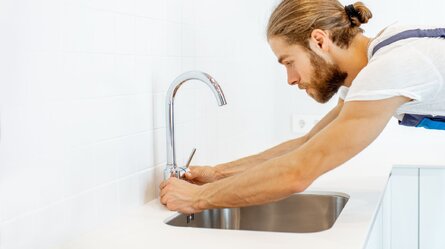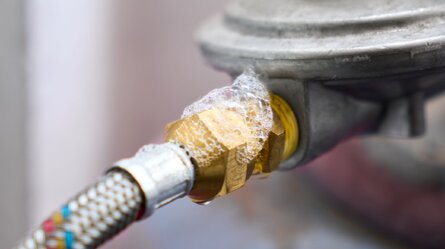Did you know that 78% of incidents involving natural gas (NG) in residential settings result in fires, while 19% are due to gas leaks, and 13% lead to explosions? These alarming statistics, drawn from a comprehensive analysis over the past decade, underscore the critical importance of maintaining gas pipes in our homes.
When gas pipes are neglected, the risks are far from trivial—ranging from devastating fires and explosions to serious health hazards caused by gas exposure. Faulty or aging gas pipes can turn a safe home into a potential danger zone, threatening both property and lives.
Regular maintenance of gas pipes is not just a recommendation; it is a crucial safety measure that every homeowner should prioritise. As we delve into the essential tips for maintaining gas pipes effectively, it’s vital to recognise that these preventative steps are not merely about compliance—they are about safeguarding the very place we call home.
Tip 1: Regularly Inspect Gas Pipes and Connections
Checking your gas pipes and connections regularly is essential for keeping your home safe. By regularly inspecting for any potential issues, you can catch problems early before they become serious.
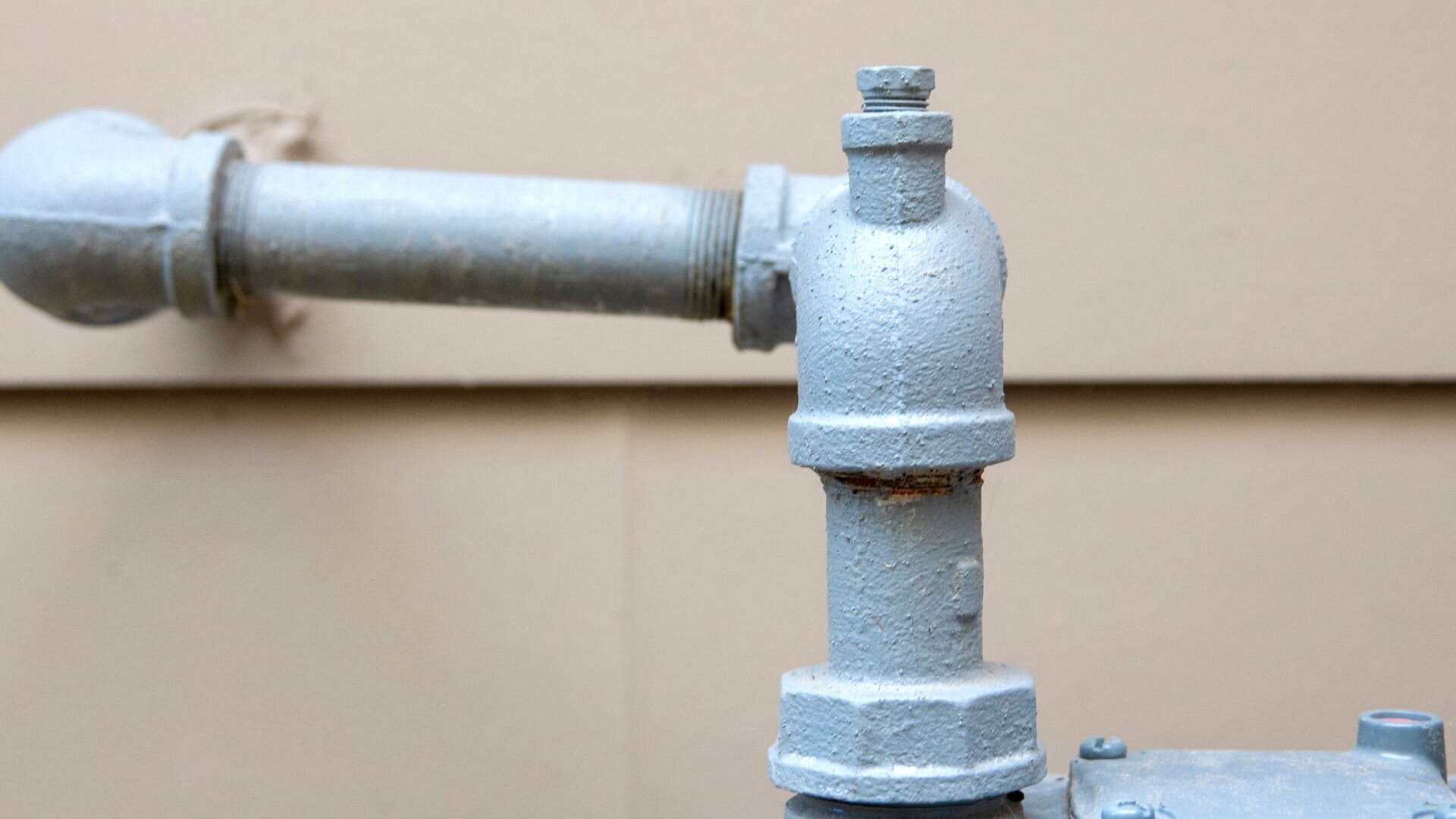
Routine Checks
Homeowners should make it a habit to visually inspect gas pipes and connections at least once every few months. Look for any signs of wear, corrosion, or physical damage that could compromise your gas system’s integrity.
Signs to Look For
During your inspection, be vigilant for specific indicators of potential issues. Rust or other forms of corrosion on pipes are red flags that should not be ignored. Cracks or dents in the pipes or connections can also signal trouble. Additionally, be alert to any unusual smells, such as sulphur or rotten eggs, as these can indicate a gas leak.
Professional Help
If you spot anything odd during your inspections, it’s crucial to call a professional plumber right away. Regular checks catch a lot, but an expert has the skills to diagnose and fix what you might miss.
Safety Precautions
Before conducting any inspection, always ensure the gas supply is turned off. This simple but critical step can prevent accidental leaks and reduce the risk of harm while you carry out your inspection.
Tip 2: Ensure Proper Ventilation Around Gas Appliances
Maintaining proper ventilation around gas-powered appliances is essential for ensuring safe gas flow and preventing the dangerous build-up of carbon monoxide (CO).
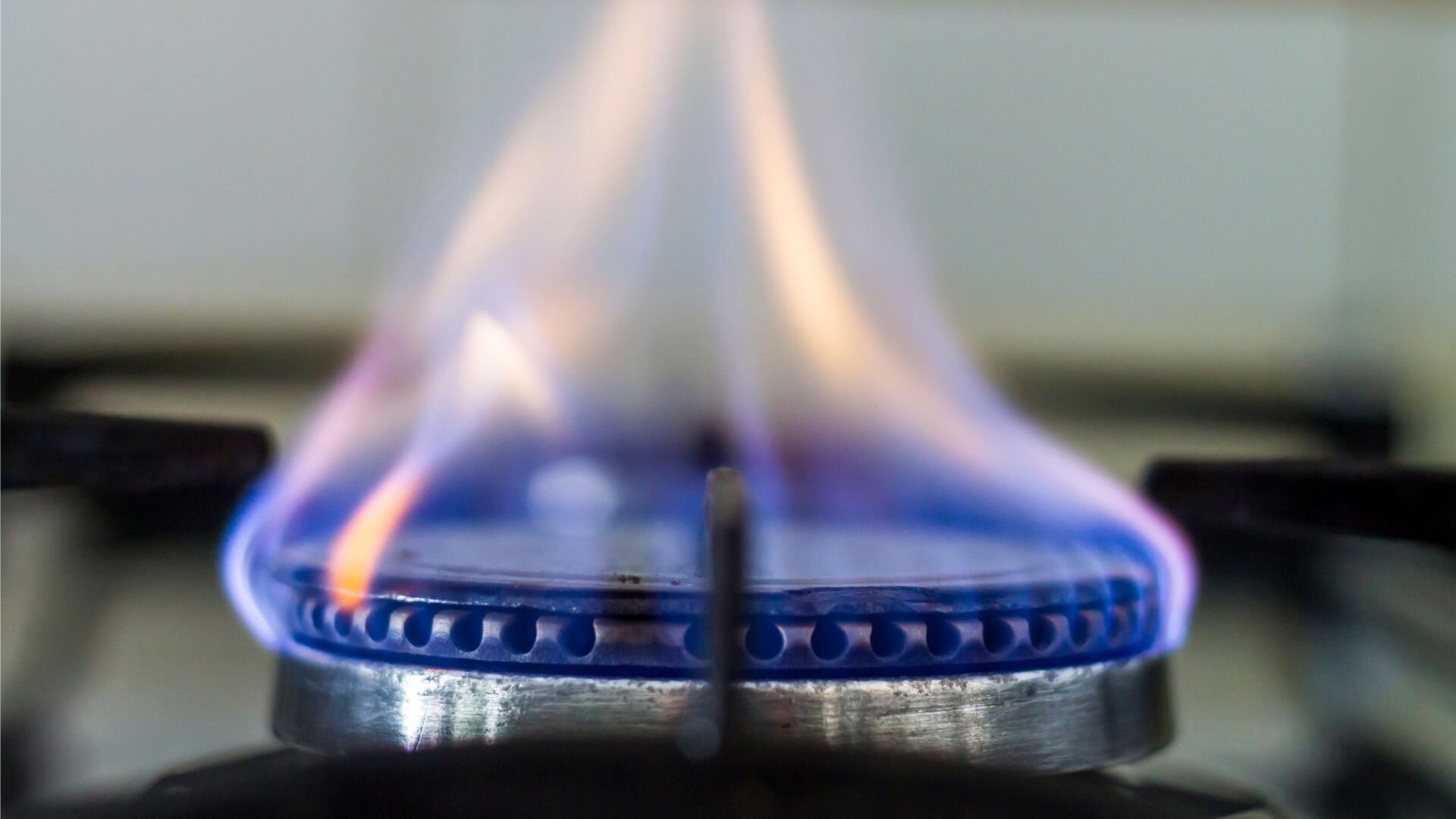
Ventilation Basics
Gas appliances require adequate ventilation to operate safely. Without proper airflow, the combustion process can become inefficient, leading to the production of carbon monoxide—a colourless, odourless gas that can be deadly at high levels. Proper ventilation ensures that harmful gases are safely expelled from the home, reducing the risk of CO poisoning.
Common Areas
Certain areas in the home are particularly prone to ventilation issues, including kitchens, laundry rooms, and basements. These spaces often house gas-powered appliances like stoves, water heaters, and dryers, making it crucial to ensure that they are well-ventilated. Inadequate ventilation in these areas can lead to a dangerous accumulation of carbon monoxide, putting your household at risk.
Regular Maintenance
To maintain safe ventilation, homeowners should regularly check that their ventilation systems and exhaust fans are functioning efficiently. Ensure that vents are clear of obstructions and that fans are effectively removing fumes and moisture from the home. Regular maintenance helps to prevent the build-up of dangerous gases and ensures your appliances operate safely.
Professional Assessment
For older homes or those with complex ventilation systems, it’s wise to schedule an annual professional inspection. A qualified technician can assess the condition and efficiency of your ventilation systems, making necessary adjustments or repairs to keep your home safe. This proactive approach is especially crucial in preventing carbon monoxide risks.
Tip 3: Install Gas Detectors and Monitor Regularly
Installing gas detectors in your home is a vital step in early leak detection, providing an essential layer of safety against potentially dangerous gas leaks.
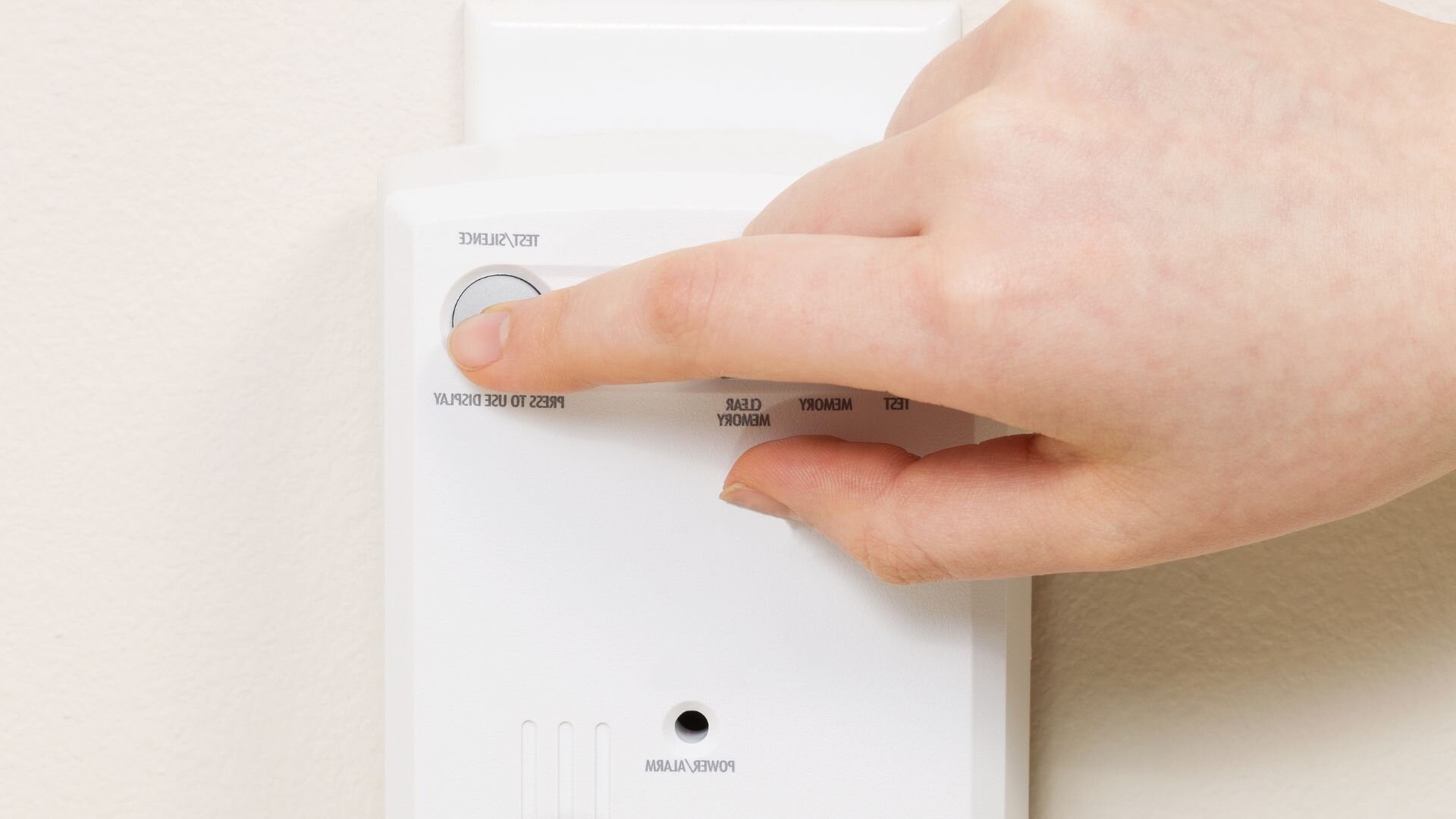
Gas Detectors
Gas detectors are devices designed to alert you to the presence of hazardous gases, such as natural gas or carbon monoxide, in your home. These detectors can identify leaks early, giving you the crucial time needed to take action before a situation becomes life-threatening.
Placement
For optimal effectiveness, gas detectors should be installed in key locations throughout your home. Place detectors near gas appliances like stoves, water heaters, and furnaces, where leaks are most likely to occur.
It’s also advisable to install detectors in basements and any other rooms with a gas connection. Ensure that detectors are positioned at the correct height—natural gas detectors should be placed higher up, while carbon monoxide detectors are typically installed at knee height or near sleeping areas.
Testing
Test your gas detectors every month to make sure they’re working right. Most have a test button that lets you check if the alarm sounds. It’s also wise to change batteries as the manufacturer suggests and think about replacing the whole unit every few years, depending on the type.
Emergency Response
If a gas detector goes off, evacuate the premises immediately, avoiding the use of any electrical devices that could ignite the gas. Once safely outside, contact emergency services to report the incident and await further instructions.
Tip 4: Maintain and Service Gas Appliances Regularly
Regular maintenance and servicing of gas-powered appliances are essential for ensuring their safe and efficient operation.
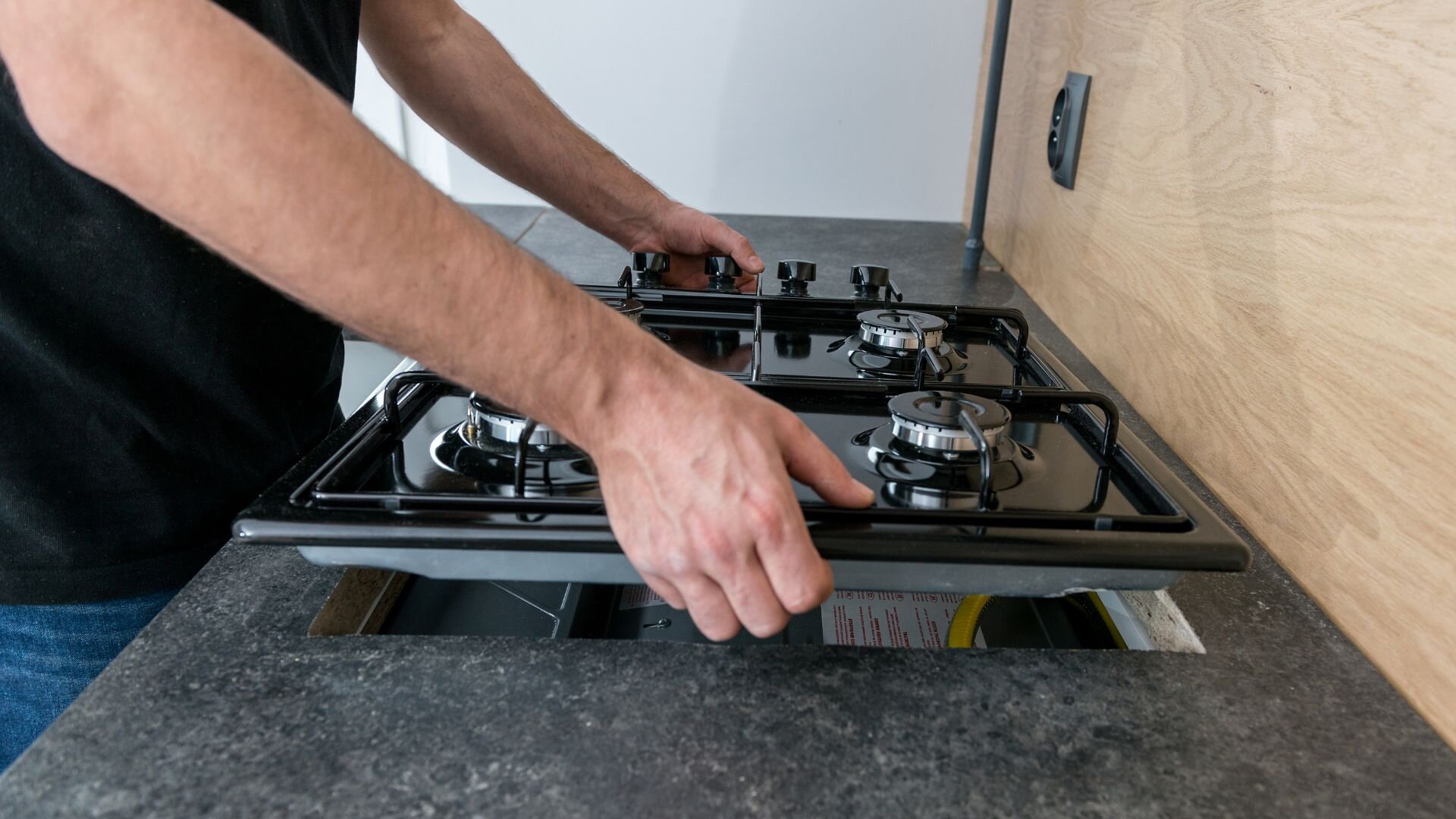
Annual Servicing
To keep your gas appliances running smoothly and safely, it’s crucial to schedule an annual service. This applies to all gas-powered devices in your home, including heaters, stoves, and water heaters. Regular servicing helps to identify and address potential issues before they become serious, ensuring that your appliances function reliably throughout the year.
Signs of Trouble
There are several signs that a gas appliance might be in need of servicing. If you notice unusual noises, such as banging or hissing, it could indicate a problem. Difficulty igniting the appliance or inconsistent performance, like fluctuating temperatures or weak flames, are also red flags. Addressing these issues promptly can prevent more significant problems down the line.
Professional Servicing
When it comes to servicing or repairing gas appliances, it’s important to hire licensed professionals. They have the expertise to detect and fix issues that may not be visible to the untrained eye. Professional servicing not only ensures the safety of your home but also helps extend the lifespan and efficiency of your appliances, ultimately saving you money on energy bills and repairs.
Tip 5: Know How to Shut Off the Gas Supply
Knowing how to quickly and safely shut off the gas supply in an emergency is crucial for every homeowner.
Locate the Shut-Off Valve
Start by locating the main gas shut-off valve in your home. Typically, this valve is found near the gas meter, either outside the house or in a utility area. Familiarising yourself with its location is the first step in being prepared for emergencies.
Practice
It’s important to practice turning the valve off and on. The valve usually requires a quarter turn to shut off the gas supply, and practising this will ensure you can act quickly and confidently if needed.
Emergency Situations
Shutting off the gas supply is necessary in certain emergency situations, such as when you detect a gas leak (e.g., smelling gas or hearing a hissing sound) or during an earthquake where gas lines could be damaged. In these cases, turning off the gas can prevent potential fires or explosions, keeping your home and family safe.
Stay Safe with Woolf Plumbing
Regular maintenance and vigilance are key, but there’s no substitute for professional expertise to truly keep your home safe. Gas systems are complex and can pose significant risks if not maintained properly. That’s why professional assessments are essential to spot and address potential hazards not visible during routine checks.
At Woolf Plumbing, we specialise in handling all aspects of gas safety, including the repair and replacement of burst gas pipes and the servicing of gas appliances. With years of experience and a deep commitment to reliability and safety, our team ensures that your home’s gas systems are in top condition. We understand the importance of protecting your home and family, and we take pride in offering expert services that you can trust.
If you have any concerns about your gas pipes or appliances, or if you’re due for a professional assessment, don’t hesitate to contact Woolf Plumbing. Let our skilled technicians provide the peace of mind you deserve, ensuring that your home remains safe and secure from gas-related hazards. Reach out to Woolf Plumbing today to schedule your service.



